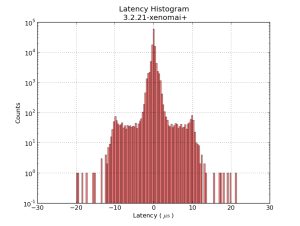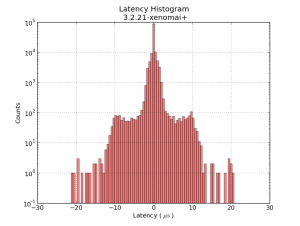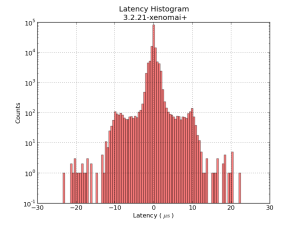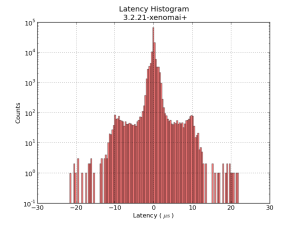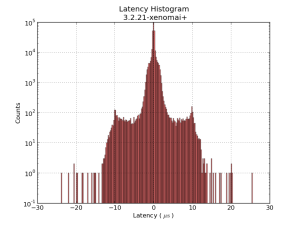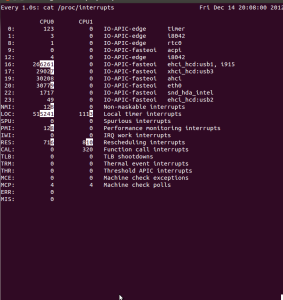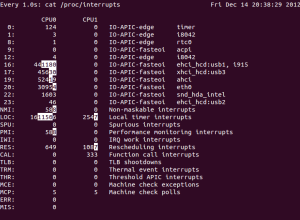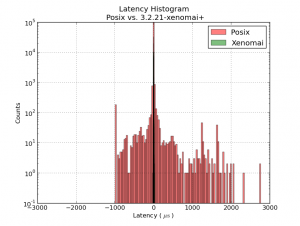I tried a number of things that are supposed to improve real-time performance, as described in this forum post.
But not much changed. This series of jitter-histograms shows little or no changes:
The things I tried are roughly
- measure first latency histogram 0.png
- uninstall the package irqbalance using synaptic. reboot.
- measure 1.png
- in /etc/default/grub modify GRUB_CMDLINE_LINUX_DEFAULT="isolcpus=1 acpi_irq_nobalance noirqbalance" (Aside: why are the files in /etc/grub.d/ made so incredibly hard to read? Someone should re-write them in Python!). Run sudo update-grub. reboot.
- measure 2.png
- Add irq-affinity.conf to /etc/init/
- Add set-irq-affinity and watchirqs to /usr/local/sbin. reboot
- measure 3.png
- Try to tweak BIOS settings. Turn off power-saving features, etc.
- measure 4.png
The output of watchirqs looks like this:
The scripts mentioned above: irqstuff
